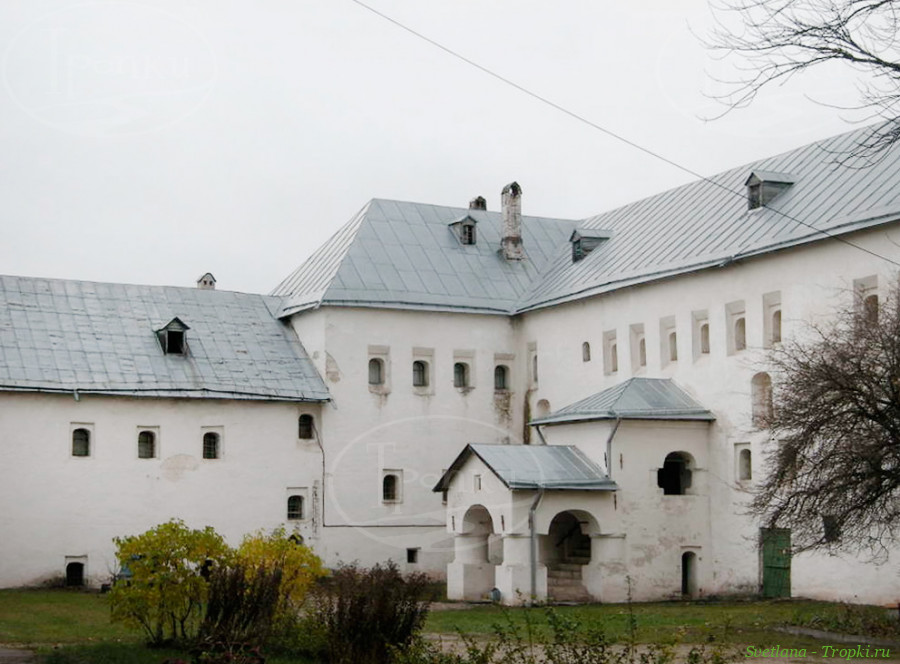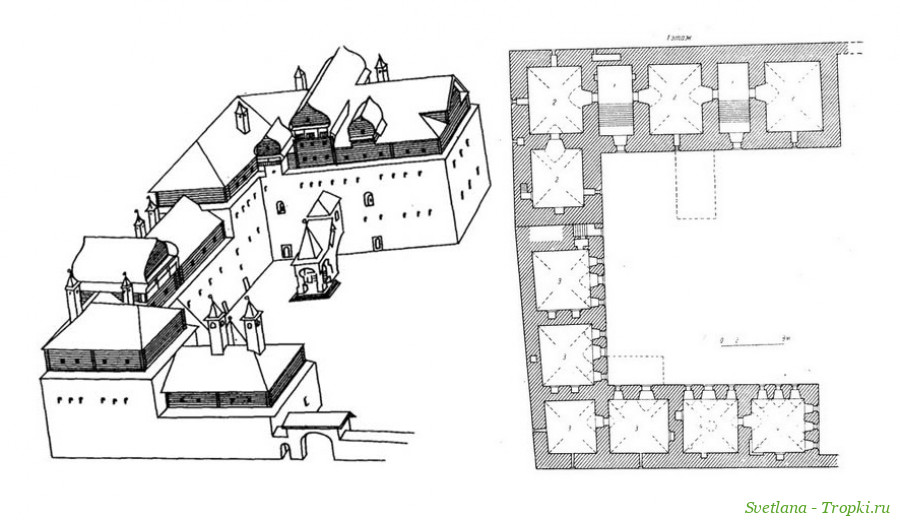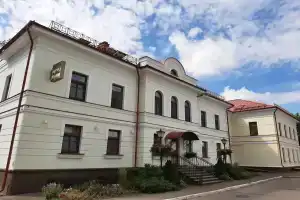Pogankin chambers in Pskov
Description
Stone residential, warehouse and industrial building, built in 1670
Chamber of merchant Pogankin was built in 1671-1679 by the Pskov masters of limestone slabs on mortar. The owner - Sergey Pogankin - was a representative of the top of the Pskov merchants and held high elective office. At various times he headed the mint, custom, supervised the collection of taxes. There are many legends about the life of a merchant Pogankin:
Many complaints from the poor people were received in Moscow about Sergey Pogankin, which was blamed for theft, murder, and duty-free trade with the Germans. Merchant is distinguished by violent temper, greed and aroused the people hate, and therefore called him "rotten" ("Pogany").
Other versions:
- Pogankin found a treasure in an unclean place,
- sells rotten (devils) money
- boasted in the presence of Ivan the Terrible of his wealth, for which the enraged king called him "rotten"
The power and influence of elected people, through their wealth, was so great that arbitrariness and abuse have caused a lot of complaints. The Pogankins family ceased to exist at the beginning of the eighteenth century, all died. And Pogankin chambers are well preserved till our days and are wonderful monument of Russian civil architecture of the XVII century.

The building had a "U"-shaped plan. Its western part was a three-story, south - two storey, east - single storey. The rooms of the first and second floor had vaulted ceilings, a third - ceilings under flat wooden plank roof. The upper floors were residential and were heated with stoves. The single storey part of the building was the kitchen. The windows here are cut just to the side of the yard, there also was facing the entrance. Presumably there was a second floor of wood, which housed the servants. In the first floors of two residential buildings housed the manufacturing, warehousing, commercial and auxiliary facilities. Interstorey transitions (stairs) were laid in the walls. Found a large number of niches and recesses.

Facing all sides 105 windows-loopholes, closed by thick iron shutters, gave the building the appearance of a real fortress. At that time Pskov was built merchants' stone houses-fortresses, designed to protect their owners from poor people indignation. Just rocked the city Pskov uprising of 1650, when the rebels, consisting mostly of small traders, artisans, soldiers and urban poor, trashed the yards of wealthy merchants, clergy and nobility. Fear for their lives and property forced the rich to build a house-fortress.
Pskov historical-architectural and art museum is located in Pogankin Chamber since 1900.
During the great Patriotic war, in the bombing in 1944 destroyed the northern part of the building, the rooms of second and third floor almost completely lost (preserved only the south wall), in the corner room of the second floor of the three-story building collapsed, the arch, the wall is deformed. As a result of renovation and restoration of 1949-1952 restored areas in the northern part of the building, the fixed metal contacts the wall of the next room, restored coving and wall ties anchored in the corner room of the second floor, the roof was restored.
Currently there is a museum here. The collection includes archaeological finds, manuscripts and early printed documents, books, paintings ancient Pskov, presents icon painting XIV-XVII centuries, the collection of silver, including many items from Local treasures.




